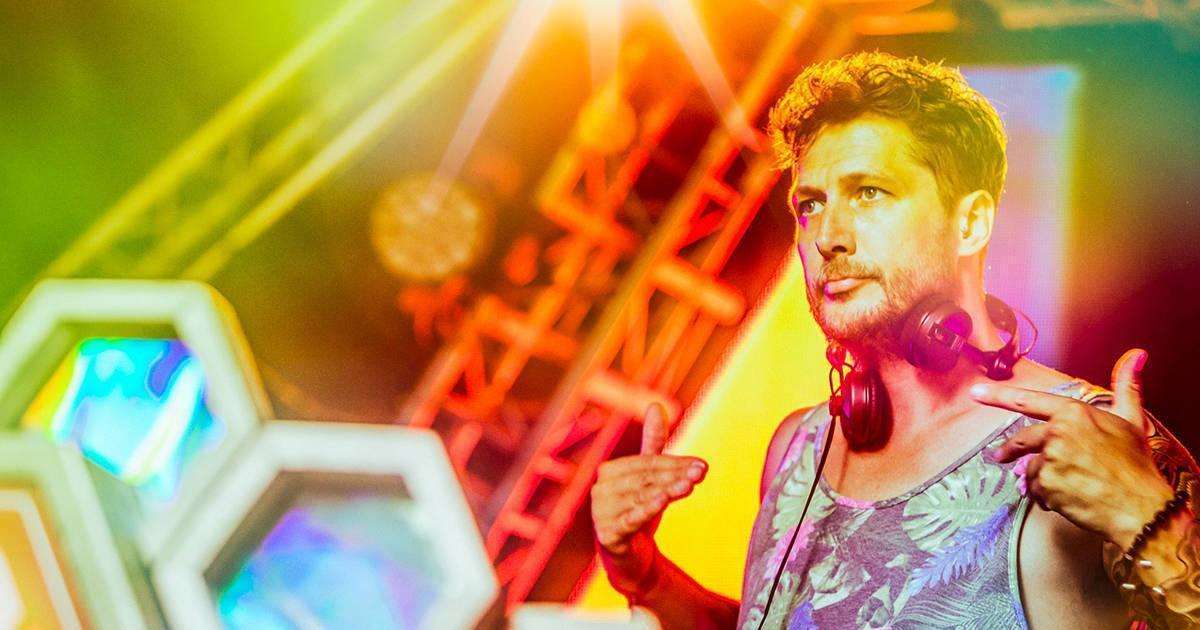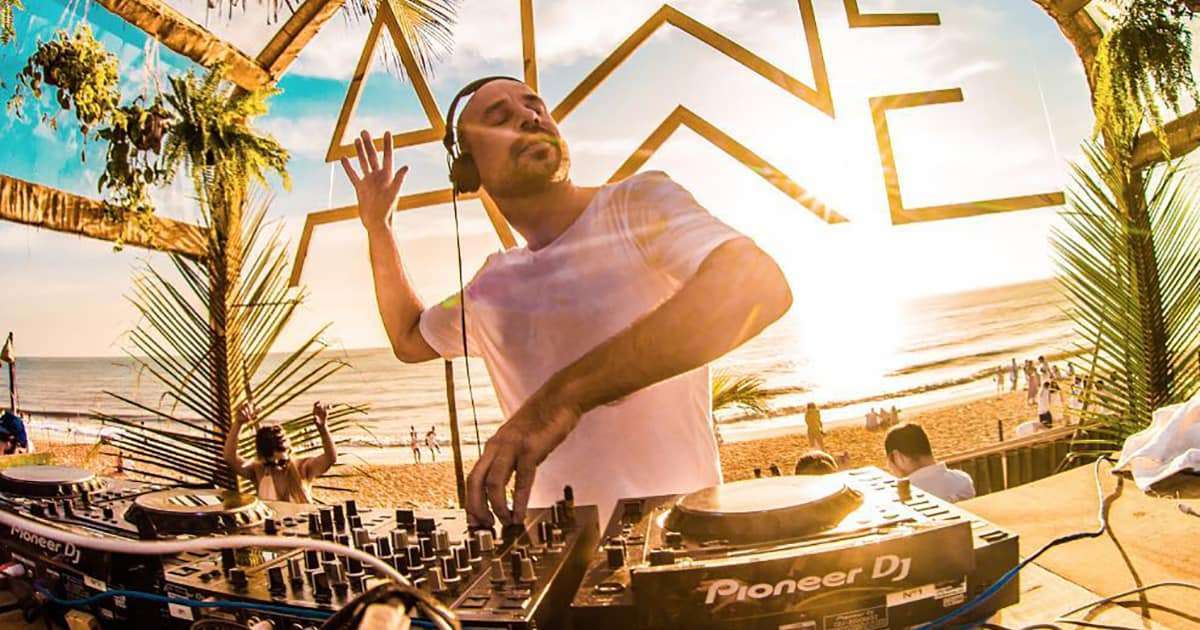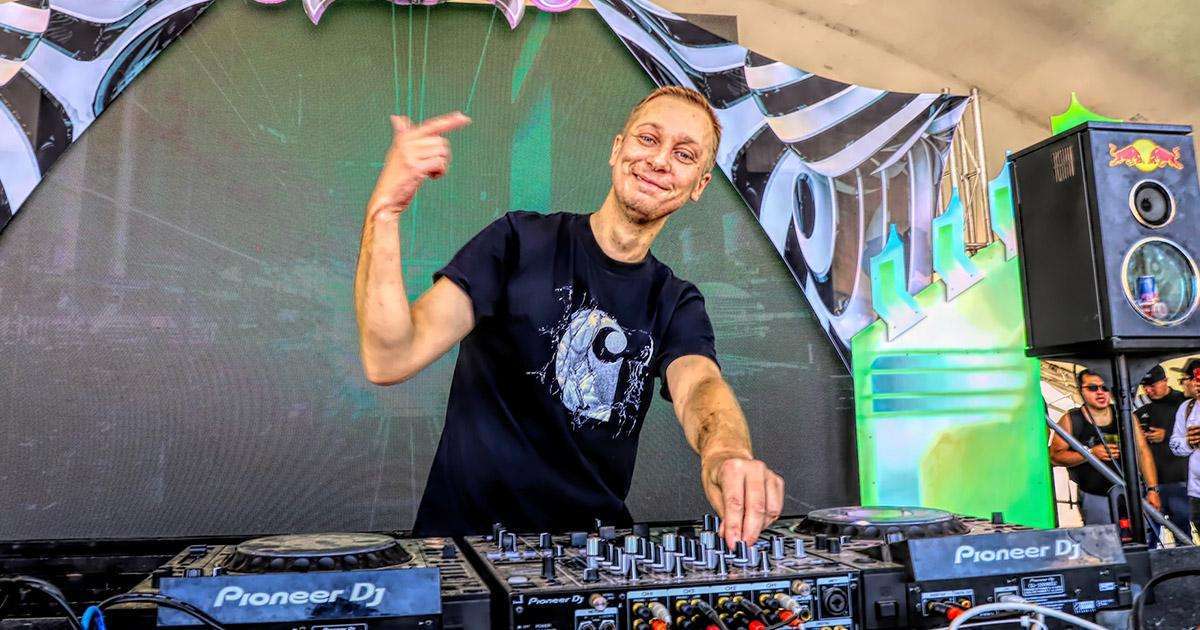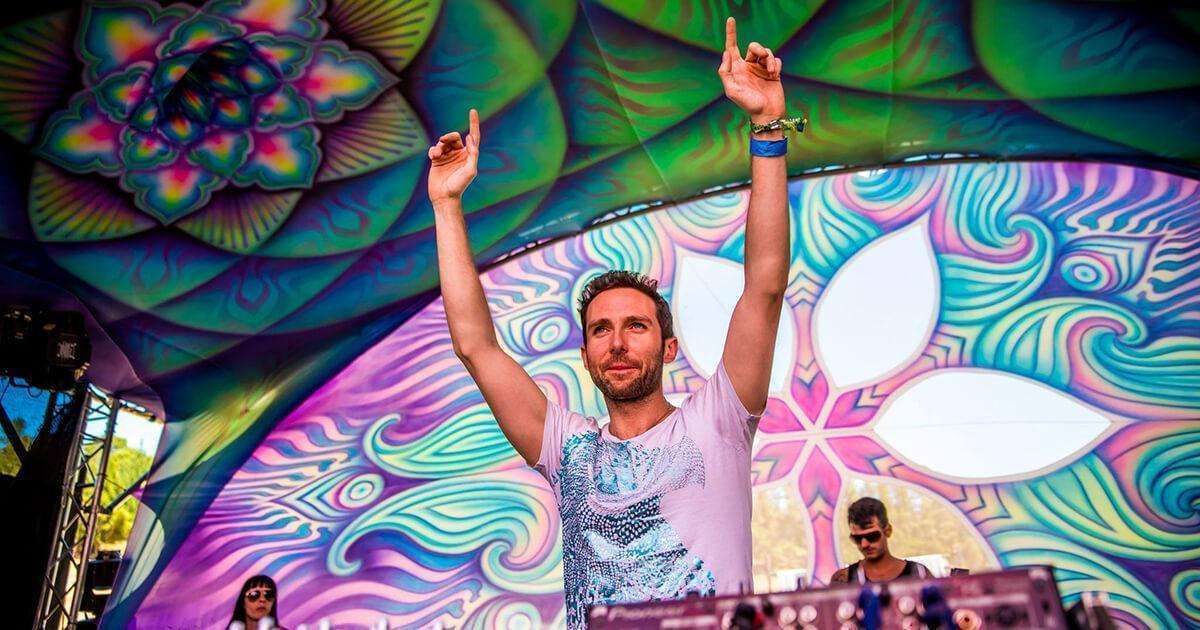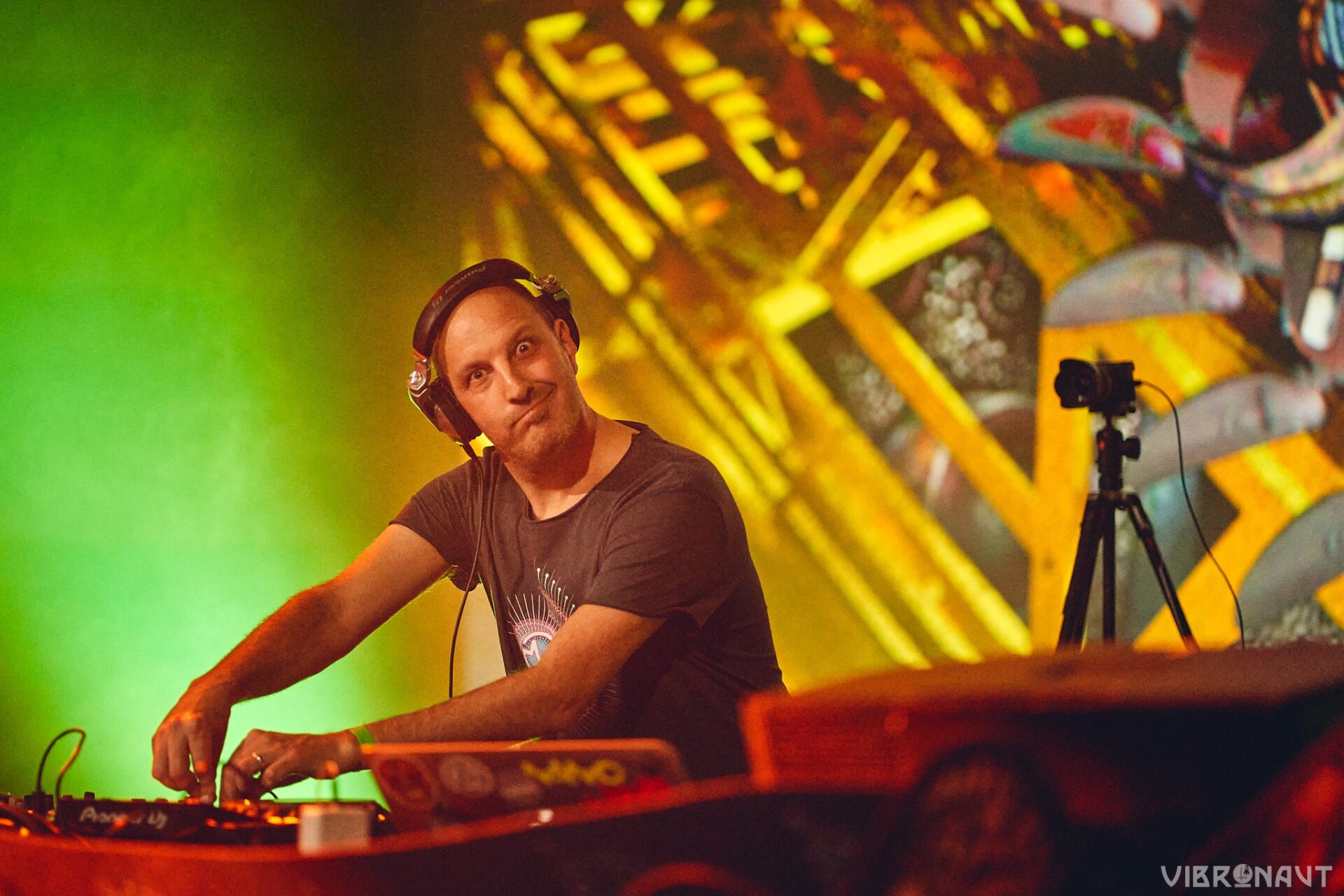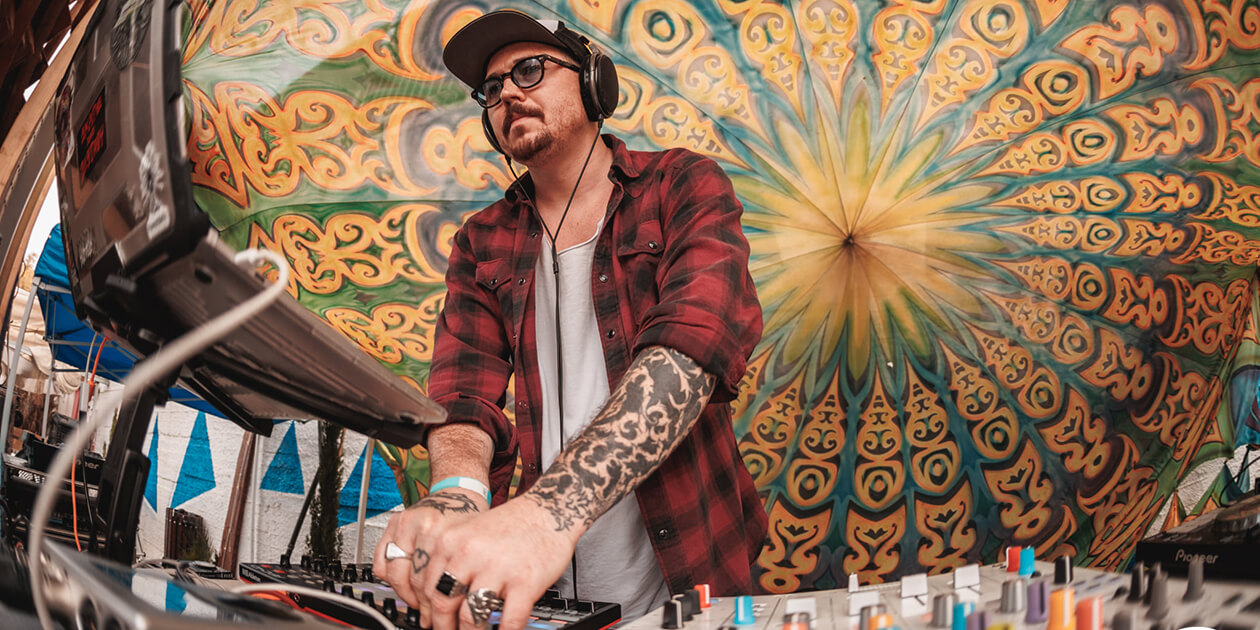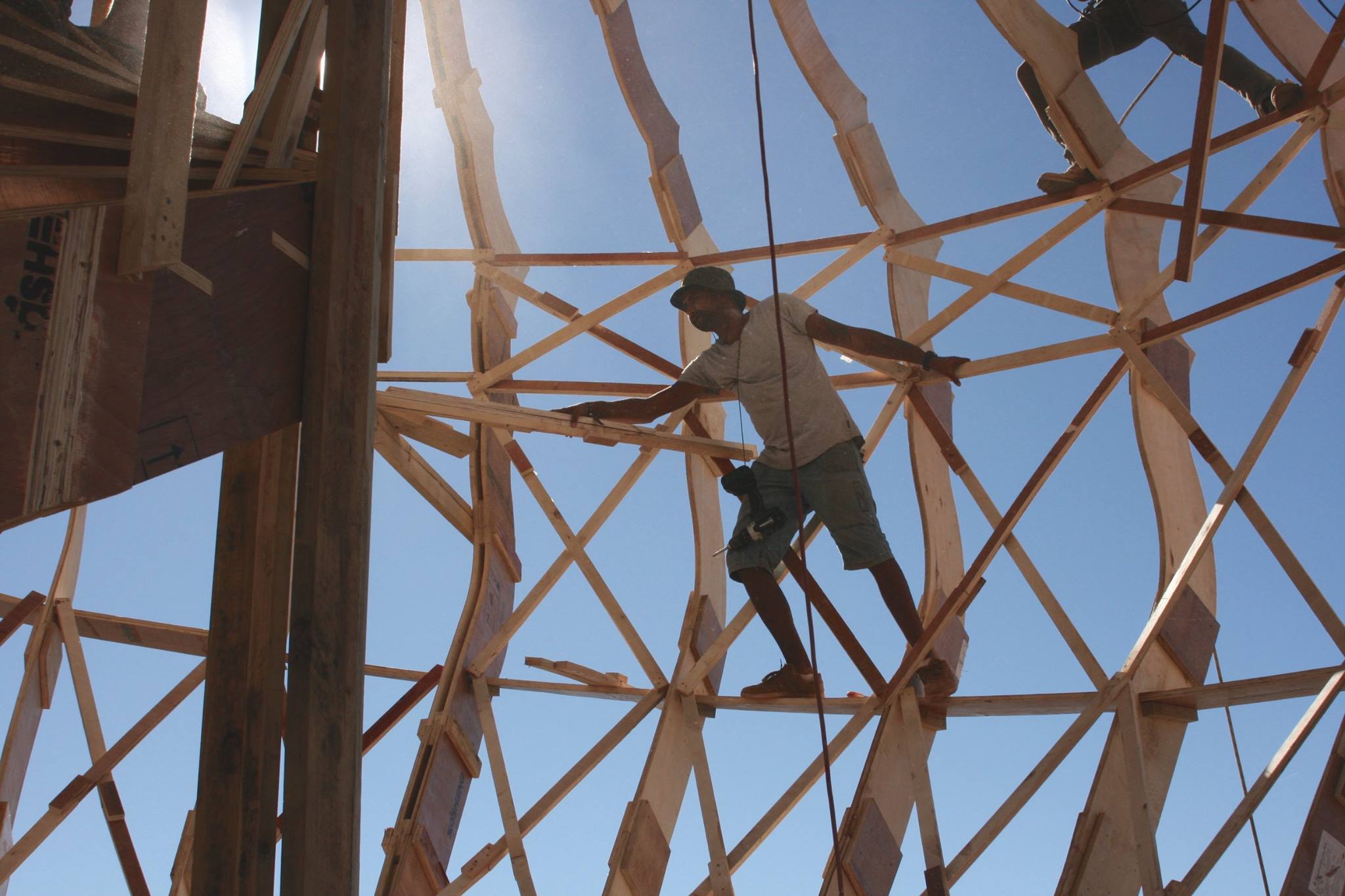DJ Emok began his career as a DJ in the late 90s, playing at various clubs and events throughout Europe. He quickly started to gain recognition and was soon playing gigs in the UK, US and Japan.
In 2001, Emok founded the Iboga Records label alongside Banel, which quickly became one of the most respected and influential trance labels in the world. He has released numerous albums and singles on Iboga as well as other labels, and his productions have been supported by some of the biggest names in the scene.
Emok has been a major influence on the trance and progressive scene and has helped to shape the sound of electronic music over the past two decades. His music and label have helped to create a vibrant and diverse electronic music landscape and have inspired a generation of producers and DJs.
Hi Mikael! Can you tell me a little bit about how you become involved in the scene in the 90s and the collective formed called ‘Rotundum’?
I started attending raves in the early 1990’s. I fell in love with the music at these early Danish raves. After a few events, I went and bought a set of Technics 1210 turntables and started practicing DJing at home. Every night, I would record a set on tape, and when I was going to bed, I would listen to my mix until I fell asleep.
I hooked up with the promoters, Rotundum, who were responsible for the first raves in Denmark. They booked me for some of their events. The support from them made me believe in my love for music, and it kick-started my career. I’m forever respectful for that opportunity!
What was the scene like in Denmark in the 90’s?
For me, it was something new and unique. It was the first wave of raves in Denmark, so everyone was excited about this new music and parties. There was just one kind of event and style, plus everyone knew each other. The scene was too small for different styles and events. It was very unique. Later, the music divided into many sub-genres, and the scene split up with multiple styles and events. It was the love / ecstasy generation. Lots of love and happiness!
At what point did you feel the necessity to form Iboga Records?
I met up with Banel, and since we knew a few people from our crowd that started producing electronic music, we decided we had to try and release a CD. The plan was to create a platform for producers in Denmark, but after the first release, which was a massive success, we received a distribution deal and things really kicked off.
This led to us travelling around the world, which provided us with the opportunity to meet new producers and artists. All the in-house artists on Iboga Records today are our close friends.
How has the strategy of the label changed in the digital age?
We have always been good with adopting to the changes in the music industry. We were the first psytrance label that put all our effort into digitizing our catalogue on digital stores, before anyone believed in it.
We also started our own booking agency early on. We’ve been hosting events worldwide for 20 years, and manage a huge publishing catalogue of our music.
We keep developing and adjusting to the market. Today we put a lot of effort into streaming, where 90% of our fans listen to music, and we are also starting to research on how to get our catalogue and publishing into the new Blockchain technology, which we believe will change the music industry in a few years.
It’s never been difficult. It’s our passion, so we love changing with the times!
It seems like Iboga has also recently focused heavily on the US dance market. Is this true?
Yes, that’s true. Finally, the market opened up in the United States and Psytrance music is receiving a ton of respect. We have been very happy working together with FMBooking and Dreamstate in the USA.
Dreamstate has been a huge part of growing the Psytrance scene in the USA, together with other promoters like Pulse in San Francisco. Recently, we put together an Iboga and FMBooking Hologram show at Dreamstate in Los Angeles, at a festival with more than 30 000 people.
Our artists regularly play in the USA, at events like EDC Las Vegas and Light in a Bottle.
Does progressive psytrance have the potential to become a mainstream electronic dance genre? Is this a good thing for the scene?
Well, it kinda already is. The psychedelic trance scene has grown in recent years, especially from the more mainstream trance scene, that has been into the UK and Dutch trance for decades. The DJ’s from the scene have started playing psytrance music, and now they host psytrance stages at their events.
Lately, at A State of Trance in Utretch (Netherlands), the psytrance stage was the second biggest stage and was full at the event.
I just want to mention that mainstream and commercial is not how I describe any kind of music. We keep doing what we love, we are just happy that more and more people are starting to appreciate our music. The world could learn a lot from the psytrance culture, and eventually it will make the world a better place.
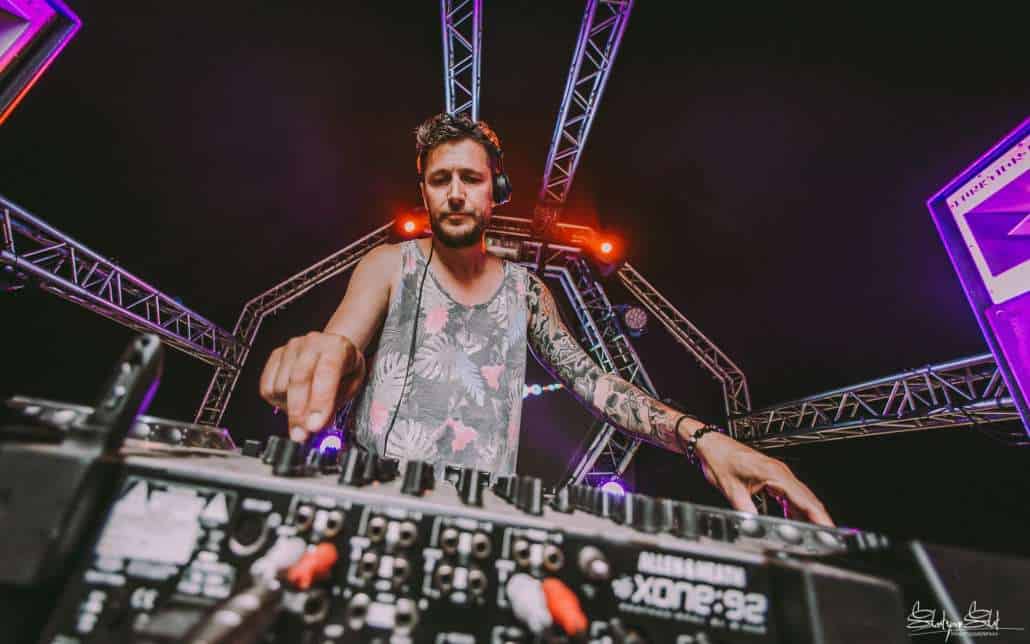
How would you describe the sound of a typical Iboga artist? Is it a reflection of your personal taste at the time or are there particular criteria?
Personality! That’s the most important for us and our in-house artists when we look to sign someone new to the label. The personality in the sound is the most important if you become a big artist. If you look at our roster, they all have a unique sound. You can put on any track from our main artists and you can always tell by the sound who produced it.
Iboga has also recently done a few live streams on Facebook. Will this be a regular feature?
Yes, that’s our new Iboga Sessions where we bring cameras to our events and record streams of the sets. The people love it, they can follow the events and music from far away, and at the same time it’s a good way to help promote the events worldwide. We plan to create a live stream at Love & Light as well!
Tell me about Iboga’s two sub labels – Sofa Beats and Future Music. How does the music released on the sub labels differ to the parent, Iboga?
Sofa Beats is electronica music and Future Music Records is more full on and psy, whereas with Iboga we maintain our more progressive / psy tech sound.
Does managing Iboga Records still leave you time to produce and tour?
No, I need more hours and lately I’ve became a dad as well, so its hard to have time for everything. But I have few tricks!
We would never have been able to manage it all without our beloved Roza that works for us. She is now part of our family and all the artists adore her. She has been the biggest asset for Iboga!
The work of FMbooking and the partnership we have with them is making the life much easier as well. Big respect to everyone in the FM office for such a great work.
I started saying no to gigs to spend more time at home. It feels very good. I have been doing this for more than 20 years and will continue to do so, but it doesn’t have to be every weekend.
I take days where I’m in the studio writing music. We are in the process of a new Critical Choice album and I have a lot of new tracks coming up with Martin Vice. When I’m in the studio I don’t bring my computer and I turn off my phone.
I learned after many years to turn off my phone when I get back home to the family. At least until my daughter sleeps. Nothing is so important that it cant wait until next day. The good thing is, people gave up trying to reach me after 5PM, at least most of them. Not Eliran, he will keep calling [laughs]
What hobbies and interests do you have other than music?
Food! Food and cooking is my big passion. I Love cooking for friends and family. I’m very good at it. I compare it with my love for music. You create something unique for other people to enjoy.
Any festivals you are looking forward to?
Yes. Boom Festival and Ozora.
Thanks for the interview. Anything to add before we finish off?
Looking forward seeing you all again! Love, Emok.
